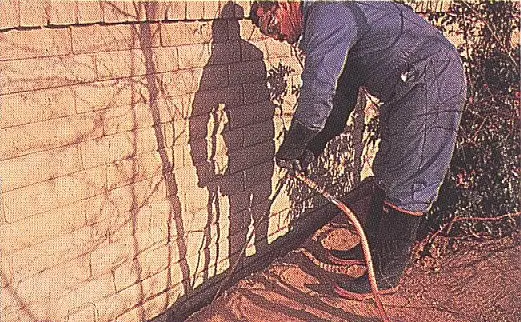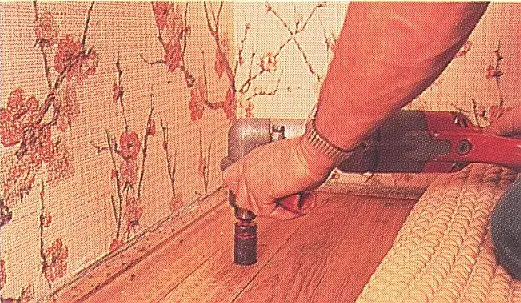Termite Elimination


DEAR TIM: This past spring my neighbor's house was invaded with termites. I am concerned that my house might be next. Even though my neighbor's house was treated with chemicals, is it possible for the termites to come over to my house? Also, being very environmental, I am concerned about the chemicals that are injected into the ground to kill termites. Is there another way? T.E.
DEAR T. E.: You bet it's possible! In fact, there is a strong possibility that your house may be already infested. Being quite the social insect, they are constantly expanding and attempting to start new colonies. The termites that your neighbor saw may actually have originated from your house.
Remodeling contractors love termites, as they do over $1 billion worth of damage a year to structures in the United States. They like to live in warm, moist soil near wood food sources, such as fallen trees, wood piles, and houses. In the forest, termites help make top soil by munching on dead trees. In houses, they simply add to our shrinking landfills by creating construction debris.
There are over 40 species of termites found in the USA. The termites live in colonies that have highly developed social systems dominated by a king and a queen. Special termites care for the queen who can live for up to 50 years and lay thousands of eggs each year. Other residents of the colony include worker termites, soldiers, and reproductives.
The worker termites are the ones that eat wood. They supply food for the entire colony. The king, queen, soldiers, and reproductives all stick around the nest doing their jobs. The worker termites are the ones that leave the nest to pick up the carry out meals from your home.
The worker termites work 24 hours a day, seven days a week. It is possible for them to travel through a crack in concrete or steel as small as 1/64th of an inch in their constant search for new food sources. Once a worker termite gets his fill from your floor joist or wall stud, he heads back to the nest where he shares the food and gets a drink. Termites are quite thirsty, as they must revisit the soil or nest every 24 hours or so.
Chemicals used in the past, and still in use today, simply provide a barrier around your house. They do nothing to actually wipe out the entire colony. In fact, some of these chemicals can actually harm other wildlife. A new system has been developed which has the capability of killing the entire colony. Small plastic monitoring stations are inserted into the soil around your house.
Termite infestation? Pick the best exterminator using my Termite and Carpenter Ant Checklist. I offer a 100% Money Back Guarantee.
A professional checks these periodically for termites. Once detected, a growth regulator, which is toxic to termites, is installed into the monitoring stations. The worker termites eat the tasty toxic food and share its location with the other workers. Soon, many workers die. This is a major problem for the termites who hang out back in the colony, as they depend upon the workers to bring them food. This system can wipe out a colony completely within six months.
Author's Notes:
September - 1999
I recently received a letter from the public relations firm that represents the Bayer Corporation. One of the head scientists at this company was kind enough to review all of my past information on termites and offered some suggestions in order to keep my content as accurate as possible.
This individual, Dr. Byron Reid, said that up until his company developed a new product called Premise, my statements about liquid chemicals not killing termite colonies was accurate. The Bayer Corporation folks maintain that their product will kill foraging worker termites immediately but does not harm pets or humans. I would ask about this system when you speak with professional exterminators. Remember, a barrier chemical treatment system is only as good as the person who is injecting the chemicals into the ground. TC